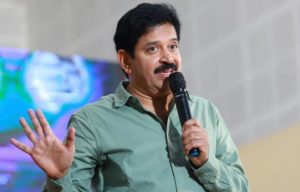Magic has been in the DNA of Different Art Centre (DAC). DAC took birth within the Academy of Magical Sciences, Magic Planet and above all, under the strong guidance of renowned and globally acclaimed magician Gopinath Muthukad. Since inception, magic was selected as the primary medium of education for the students at DAC. Other forms of art like music, dance, drama, acting and painting co-existed to elevate the ambience of what magic has been providing.
DAC has been assessing the changes in behaviour, skills and other development in the children on a regular basis. Understanding, learning and performing magic has been a vital element in our methods of teaching. At the same time, it was understood that the level of gratification received by the child is a booster to his overall growth.
Amongst artforms and scientific subjects, it was seen that magic, as a subject, carries the highest level in performance gratification. It was found that magic can potentially be an effective teaching strategy because it addresses the three domains of the learner – cognitive (content knowledge and critical thinking), affective (social relationships and self-esteem), and psychomotor (physical skills).
The crucial part of doing a magic performance is to perform with a deceiving attitude that makes belief in the viewers. This kind of an approach is very difficult to mould in intellectually challenged persons. But once they attain this amount of change that comes with it is tremendous. Unlike in any other artform, spectators of magic always tend to look at how a magician can fail by default. So, any success is a magician win over the act as well as a defeat over this default mindset.
Community becoming part of the framework
Under the guidance of Gopinath Muthukad, DAC started teaching magic to students with special needs to address specific learning needs, mainly psychomotor skills, but over the years, the use of magic has expanded. Availability of performance avenues in the Magic Planet campus provided opportunity to perform the learned skills in front of public. It was observed tp be becoming a indispensable part of the learning process. Just like how a student gets to apply the learned theorems in a laboratory – the differently abled persons learning magic gets to meet audience to experiment their learned skills. This is one such place where they expect the element of applause and resulting gratification, which is a crucial part of the whole framework. Students have been eagerly waiting for audience to perform and receive appreciation. This leads to the bigger picture that makes the community also to be part of the process, which evolves as a primary node of the learning framework.
Magic and children with special needs
Gopinath Muthukad and the team at DAC have been researching throughout the past few years, regarding the use of magic for the differently abled. There are two main reasons to introduce the use of magic in the programs. The first is for the performance of magic; for the students’ engagement, skill attainment and learning. The second is the teaching of magic to students; where the students become the magicians and learn to perform magic. Both reasons can play a very important role in students’ learning. From the proven experience in rigorously using magic and ascertaining its results at DAC, it evolved a training framework, which we call as Muthukad model of Curriculum for the differently abled.


